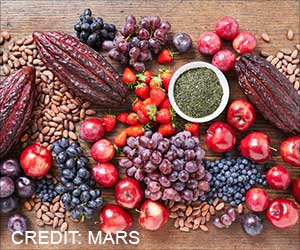- Vegan diet slashes insulin needs by 28% and improves insulin sensitivity by 127%
- Significant reductions in cholesterol levels and cardiovascular risk factors observed
- Potential cost-effective solution amid rising diabetes prevalence and healthcare costs
In a recent study conducted by the Physicians Committee for Responsible Medicine and published in Clinical Diabetes, compelling evidence has emerged regarding the efficacy of a low-fat vegan diet in managing Type 1 diabetes. The findings reveal that such a dietary approach not only reduces insulin requirements but also significantly improves insulin sensitivity and overall glycemic control (1✔ ✔Trusted Source
Effect of a Dietary Intervention on Insulin Requirements and Glycemic Control in Type 1 Diabetes: A 12-Week Randomized Clinical Trial
).
Type 1 diabetes, characterized by the body’s inability to produce sufficient insulin due to an autoimmune reaction targeting pancreatic beta cells, necessitates meticulous management of blood glucose levels. Traditionally, insulin therapy has been the cornerstone of treatment. However, emerging research suggests that dietary interventions, particularly adopting a low-fat vegan diet abundant in fruits, vegetables, whole grains, and legumes, could revolutionize diabetes care.
Can a Vegan Diet Be the Key to Managing Type 1 Diabetes?
The 12-week randomized clinical trial, involving 58 adults with Type 1 diabetes, demonstrated remarkable outcomes. Participants adhering to the low-fat vegan diet experienced a notable 28% reduction in insulin requirements compared to those following a portion-controlled diet regimen. Furthermore, individuals on the vegan diet exhibited a staggering 127% increase in insulin sensitivity, indicating enhanced cellular response to insulin—a pivotal factor in diabetes management.
Crucially, these improvements were accompanied by favorable changes in weight, cholesterol levels, and kidney function. Notably, participants on the vegan diet witnessed a significant reduction in total cholesterol levels and LDL cholesterol—a key risk factor for cardiovascular disease, which is a prevalent concern among individuals with Type 1 diabetes.
Implications for Diabetes Care
The implications of these findings extend beyond glycemic control. Given the well-established link between Type 1 diabetes and cardiovascular complications, the observed reductions in insulin use, HbA1c levels, and cholesterol profiles translate into tangible cardiovascular benefits. Notably, the study suggests a potential 9% reduction in cardiovascular risk attributable to the decreased insulin usage associated with the vegan diet.
Moreover, with projections indicating a concerning rise in the prevalence of Type 1 diabetes, alongside escalating healthcare costs, the significance of affordable and sustainable management strategies cannot be overstated. The study underscores the potential of a low-fat vegan diet as a cost-effective and accessible intervention, particularly considering the soaring costs of insulin and diabetes care.
Dr. Hana Kahleova, the lead author of the study, emphasizes the transformative impact of dietary interventions on diabetes management and heart health. She advocates for a paradigm shift towards incorporating low-fat vegan diets as a viable therapeutic approach for individuals with Type 1 diabetes, citing its potential to reduce insulin dependence, improve glycemic control, and mitigate cardiovascular risk factors.
In conclusion, the groundbreaking study underscores the profound benefits of adopting a low-fat vegan diet in managing Type 1 diabetes. By harnessing the power of plant-based nutrition, individuals can not only optimize their diabetes management but also safeguard their cardiovascular health, offering newfound hope and empowerment to millions grappling with this chronic condition. As we navigate the evolving landscape of diabetes care, embracing innovative dietary strategies holds the promise of transforming lives and shaping a healthier future for all.
Reference:
- Effect of a Dietary Intervention on Insulin Requirements and Glycemic Control in Type 1 Diabetes: A 12-Week Randomized Clinical Trial – (https://diabetesjournals.org/clinical/article/doi/10.2337/cd23-0086/154329/Effect-of-a-Dietary-Intervention-on-Insulin)
Source-Medindia



